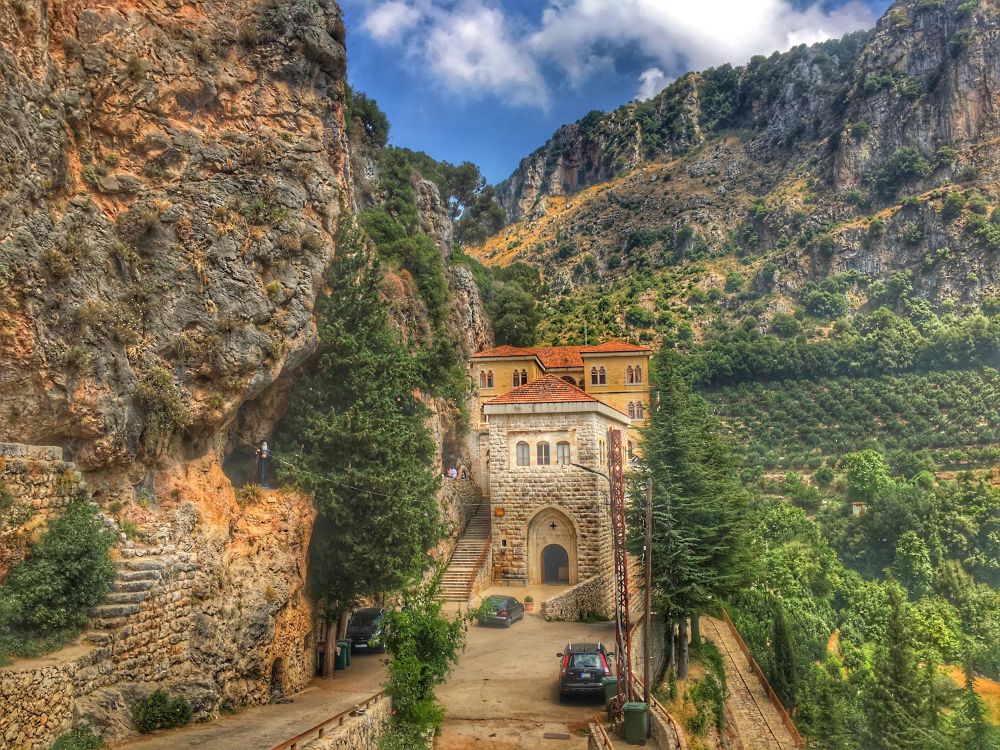Food History of Elisha’s Monastery, Cedars of God, Lebanon
The Cedars of God, enveloped within the Qadisha Valley and near the ancient forest, is a region that reflects the deep culinary traditions of Lebanon. The food history here is rich, woven with religious and cultural practices from centuries of diverse influences, including Maronite Christians, Muslims, and Druze, among others. Elisha’s Monastery, an old Maronite sanctuary, has served as a spiritual haven and a place of retreat. Given the ascetic lifestyle of monks, the food culture here has primarily been of frugality, emphasizing local and fresh ingredients.
Historically, the region promoted the use of herbs, vegetables, and fruits due to the growth encouraged by its fertile lands. These ingredients formed the base of most dishes that were shared communally, embodying the values of hospitality and simplicity.
Top 10 Food Dishes to Try for Tourists at Elisha's Monastery, Cedars of God, Lebanon
- Tabbouleh (Veg) - A refreshing Levantine salad made from finely chopped parsley, bulgur, tomatoes, onions, mint, and dressed with olive oil and lemon juice.
- Hummus (Veg) - A creamy spread made from cooked, mashed chickpeas, blended with tahini, lemon juice, and garlic.
- Fattoush (Veg) - Another popular Levantine salad, made with mixed greens, fresh vegetables, and toasted or fried pieces of pita bread.
- Manakish (Veg) - Similar to pizza, this is a flatbread topped with za’atar, cheese, or ground meat, but traditionally the za’atar version is favored in ascetic settings like Elisha's Monastery.
- Falafel (Veg) - Deep-fried balls made from ground chickpeas and/or fava beans, usually served with tahini sauce.
- Mujaddara (Veg) - A dish made with lentils and rice, and typically garnished with caramelized onions.
- Labneh (Veg) - Thick, creamy yogurt cheese that is often spread on bread or eaten with olive oil and herbs.
- Baba Ghanoush (Veg) - A smoky eggplant dip mixed with tahini, garlic, and various seasonings.
- Loubieh Bzeit (Veg) - Green beans cooked in olive oil, with tomatoes, onions, and garlic, often served cold.
- Kibbeh (Non-Veg) - Although typically made with ground meat, vegetarian versions exist that substitute pumpkin or potatoes for meat, thus creating a delicious Levantine bulgur wheat dumpling that is well-loved.
Top Famous Restaurants in Elisha's Monastery, Cedars of God, Lebanon
While there may not be a vast array of restaurants directly within the religious precincts, several dining options in the nearby areas offer traditional Lebanese cuisines.
- Le Cedrus Restaurant & Lounge
- Address: Cedars, Bsharri District, North Governorate
- Famous Food: Manakish (Veg)
- Al-Forno
- Address: Main Road, Bsharri District, North Governorate
- Famous Food: Fattoush (Veg)
- Feniqia
- Address: Jounieh, Lebanon
- Famous Food: Tabbouleh (Veg)
- Restaurant Le Montagnou
- Address: Near Ouyoun El Simane, Kfardebian
- Famous Food: Loubieh Bzeit (Veg)
- Les Jardins Du Mzaar
- Address: Ouyoun El Simane, Kfardebian
- Famous Food: Hummus (Veg)
Please note that the addresses provided serve as general locations, placing these restaurants in or near the Cedars of God region, and the famous food items indicated are based on typical Lebanese cuisine. It is advisable to check for the most current information and restaurant availability before visiting, as offerings can change seasonally.

